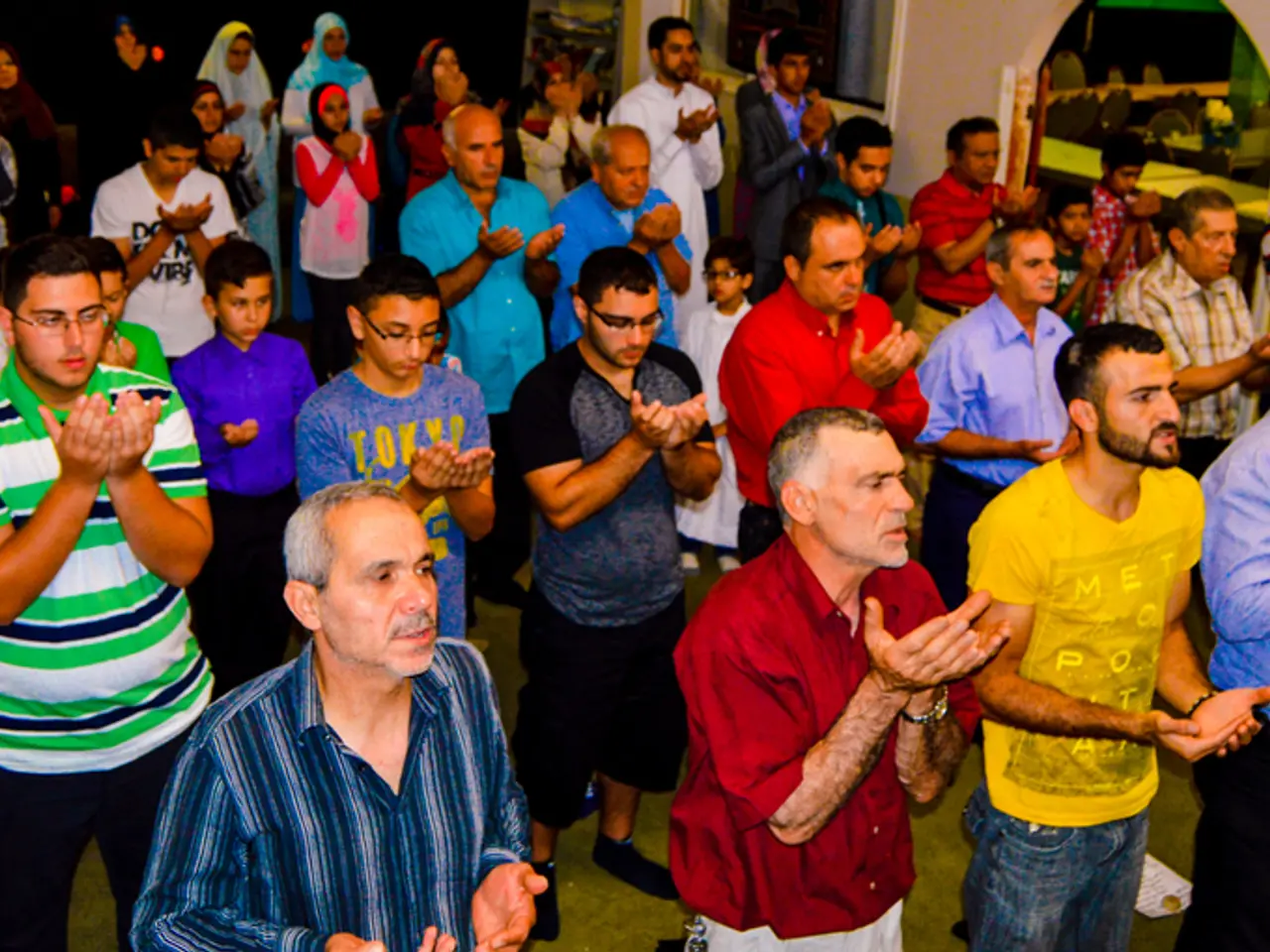Kyoto, renowned for its abundant temples, poses a unique conundrum for tourists seeking Muslim prayer facilities
Kyoto, a city renowned for its numerous Buddhist temples and Shinto shrines, is seeing a surge in foreign tourists, particularly from Muslim-majority nations. In the first half of 2025, over 300,000 visitors from Malaysia and Indonesia, and roughly 115,000 people from Middle Eastern countries, have chosen Japan as their travel destination.
As the city adjusts to accommodate this growing demographic, the need for prayer facilities has become a key consideration. The city's approach involves planning and potential renovations of public and travel facilities.
Muslim prayer rooms can already be found at some public and commercial facilities in Japan, as well as hotels and transportation hubs. For instance, near Kyoto's central zone, the Kyoto Muslim Prayer Room (Musalla) at Kyotoshiyakusho-mae Station offers a dedicated space for Muslim visitors, providing convenience during peak tourist seasons.
The Kyoto City Tourism Association has compiled a list of prayer rooms available on its website, serving as a valuable resource for visitors during their stay. This list includes prayer rooms at the Kansai Tourist Information Center Kyoto, located near Kyoto Station, which sees over 100 worshippers a day during busy seasons.
The increasing number of Muslim visitors is a situation that the city is aware of. However, there haven't been angry complaints demanding more prayer rooms in Kyoto. Buddhism and Shinto generally allow travelers of other faiths to visit their temples and shrines, but they do not typically set up prayer rooms for other religions within their grounds.
The city's awareness of the increasing number of Muslim visitors is part of ongoing discussions regarding facilities. For the time being, there is no swell in calls for temples and shrines to install prayer rooms.
The city's popularity as a tourist destination, coupled with the scarcity of mosques in Japan due to the country's small Muslim population, has led to issues such as managing crowding on public transportation and educating visitors on expected etiquette. Despite these challenges, Kyoto remains a welcoming city for tourists from all faiths.
In conclusion, Kyoto is adapting to the growing number of Muslim visitors, offering prayer facilities at various public and commercial locations. The Kyoto City Tourism Association's list of prayer rooms serves as a useful resource for visitors seeking prayer facilities during their stay. The city is likely to discuss providing more prayer rooms when planning new public and travel facilities or making renovations.
Read also:
- Impact of Alcohol on the Human Body: Nine Aspects of Health Alteration Due to Alcohol Consumption
- Understanding the Concept of Obesity
- Tough choices on August 13, 2025 for those born under Aquarius? Consider the advantages and disadvantages to gain guidance
- Microbiome's Impact on Emotional States, Judgement, and Mental Health Conditions







